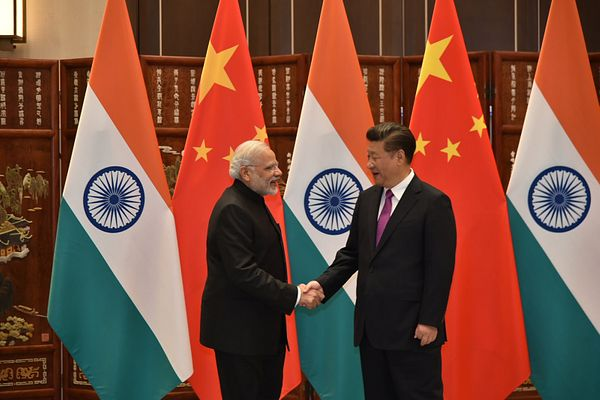India–US Trade Tensions Rise Over Steel and Auto Tariffs NMDC Limited reports a 38% drop in Q4 FY24 consolidated net profit RINL to Raise $23 Million Through Land Sales Amid Crisis

Chinese state energy giant Sinopec is pushing for greater access to Sri Lanka's market, where rival India is also seeking to expand its presence, as it looks to build its first fully-controlled overseas refinery, reflecting a change in the firm's global strategy to compensate for slowing demand growth at home.
Sinopec, the world's largest oil refiner, is expected to complete a feasibility study by June for a plant at the Chinese-run Hambantota port, after winning Colombo's approval last November, according to the sources.
While the China-based sources say the investment, which Colombo pegged at $4.5 billion as the country's largest-ever foreign investment, is commercially driven, neighbouring India is pushing a rival plan to build a fuel products pipeline to the island nation southeast of the subcontinent.
Sinopec's effort to build a refinery with a more domestic orientation rather than the export-focused project sought by Sri Lanka, which has not previously been reported, puts it in direct competition with India's interests in expanding its role as an energy supplier to the country. New Delhi-run Indian Oil Corp (IOC) is the No.2 fuel supplier to the country, after Sri Lankan government-owned Ceylon Petroleum Corp.
Sinopec, which has not publicly spelled out its strategy, is prioritising the Sri Lanka investment and another in Saudi Arabia under a newly launched investment arm, in an effort to leverage its expertise and deep pockets to expand globally as oil demand nears its peak in China as economic growth slows and electric vehicle adoption widens, the sources said.
Sinopec's efforts mark a new trend in Chinese oil and gas investments abroad after mergers and acquisitions dried up to just $344 million in 2023, a fraction of the record $31 billion in 2012, according to LSEG data, following the 2014/15 oil price collapse and as Beijing tightened scrutiny over the finances of its national oil giants.
Sinopec is working to finalise details including the plant's size and product configuration, while negotiating with Colombo over terms including greater access to the import-reliant Sri Lankan market, an element key for its final investment call, the sources said. The south Asian nation, grappling with a dearth of foreign exchange, has sought a refinery that would deliver 20% of its fuel domestically and export the rest to generate much-needed hard currency.
Sri Lanka's power and energy minister, Kanchana Wijesekera, told that the government is sticking to that requirement. Sinopec, however, believes domestic sales would be more profitable, the two sources said, declining to be identified as the matter is not public. The company is considering either a 160,000 barrel per day (bpd) plant or two 100,000-bpd plants built in phases, which in either case would be geared towards gasoline and diesel fuel, the sources said.
Also Read : India and Australia aim to enhance collaboration in critical minerals, processing Foxconn India to spend ₹1,200 cr to build a factory, scale up operations